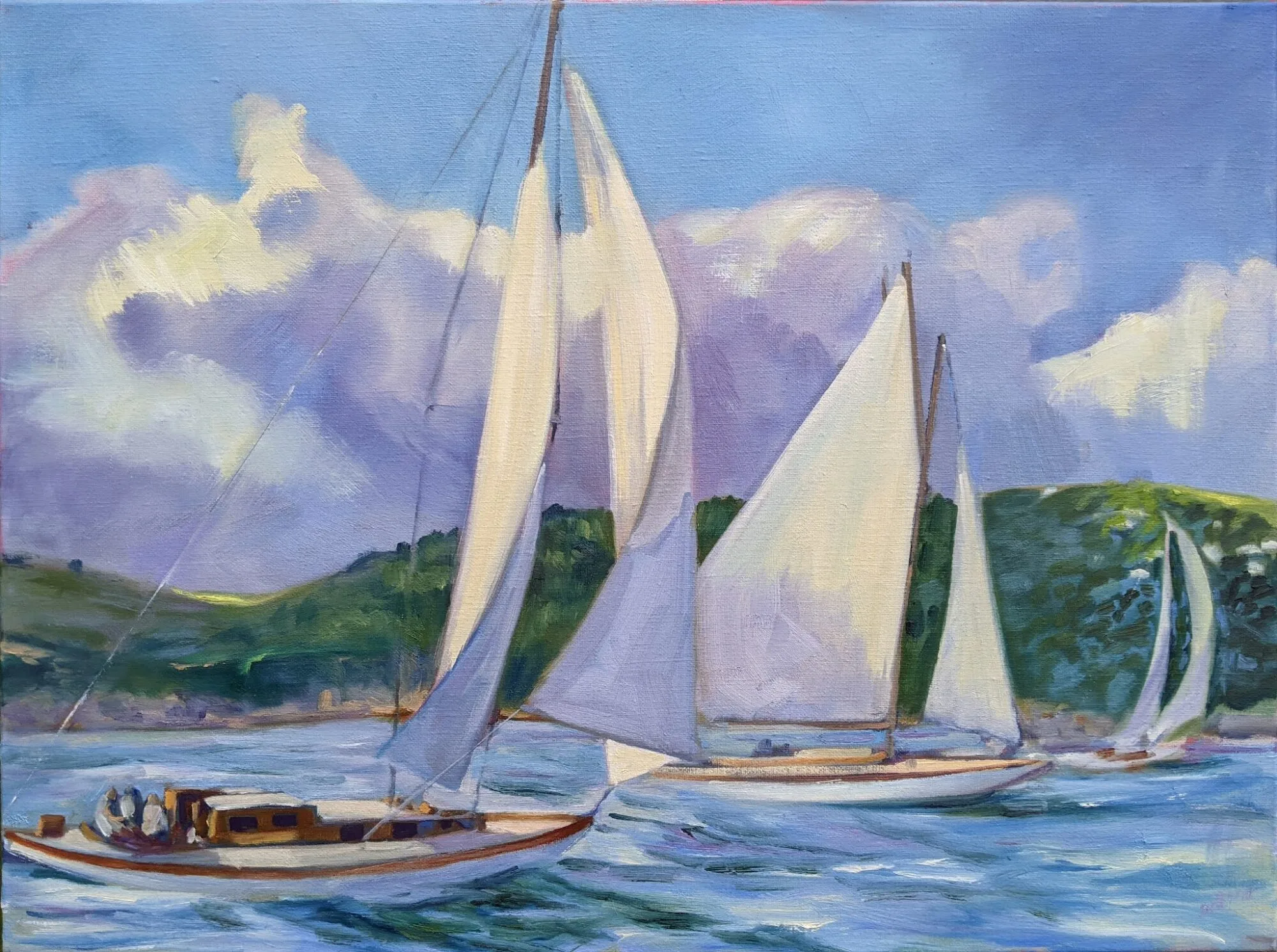Sometimes the balance between creativity and routine gets out of kilter, and it never seems to be in favor of creative time.
I’m sorry there was no post yesterday. Grandchildren are human petri dishes, and mine gave me their norovirus. (That’s the nature of children, and I would change nothing.) I’m feeling better today, but not 100%.
Ironically, I’d planned to write about action vs. reaction. Every job has moments of each designed into it. For example, the EMT who saves your life is mostly reactive, responding to what’s happening to you and the instructions he’s getting over his radio. The engineer designing a new system of 0s and 1s is mostly active. As he interacts with his team, though, he is reactive.
But that’s in the particular. Generally speaking, most successful people are reactive much of the time. They’re listening to their competitors, their peers, and their customers, and trying to give the people what they want.
 |
| Palm and Sand, by Carol L. Douglas |
The self-employed artist is stubbornly individualistic, but that doesn’t save him from reactivity. We treasure our active tasks, like painting or marketing, that we initiate and drive ourselves. Then there are tasks that are in response to others’ initiatives. For example, at 2 PM today, I must send an email. I don’t know why this particular moment is important to the organization but I do know that a small part of my mental energy today will be spent wondering whether gmail’s delayed-send feature really works.
Painting commissions, while on the ‘creative’ side of our ledger, are fundamentally reactive tasks. This is why some artists don’t enjoy them as much as other work. The impetus, the spark of idea, didn’t originate with us.
All sole proprietors exist in this maelstrom of action and reaction, which tug and vie for our scarce time.
 |
| Spring, by Carol L. Douglas, painted down the road a piece, on an April day. |
Chief among the reactive tasks is bookkeeping, which I’d never do at all if the IRS didn’t prod me into it. Before I can file my taxes, I must audit my records to determine if they’re true. The whole job takes me the better part of a week. I think I should try doing the audits monthly. However, every February, I am so happy to be free of bookkeeping that I just go back to the Excel equivalent of stuffing receipts in an envelope.*
This year I decided to try to paint in the mornings and work on bookkeeping in the afternoons. This was a total failure. I would just settle in to my canvas and it would be time to move over to the dining room and its carefully separated piles of papers.
I’m back to my usual technique, which is to schedule tax prep during the nicest week of winter weather. It’s a knack, I tell you.
Why can’t I just ignore my taxes for a week and get back to them when the weather gets bad? Despite my protestations that I wouldn’t do this to myself again, I’ve arranged to be shot out of a cannon again this spring. On March 4, I’m leaving for a short painting trip through Alabama, Mississippi and Louisiana. My third daughter is getting married in May. And after that is my regularly scheduled season. It’s now or never, and the IRS doesn’t like never.
| Fall cookies for another daughter’s wedding. That won’t work for May! |
I have learned that tasks tend to be amorphous until they’re pinned down. That means that small ones, like “order paint” loom as large as “bake 1000 cookies for the wedding reception,” a job I will be doing without my designer pal Jane this year. Writing them down and classifying them helps me keep them in perspective.
I’ve written before about Bobbi Heath’s time management system, here. It’s a simple system that can stop you from losing your mind when you’re overwhelmed. Whatever system works for you, now is a great time to deploy it, before the weather gets fine and you’re on the run.
*I had a GPS that kept mileage records. I just retired it and bought MileIQ. It’s fantastic for the plein airpainter, who starts and stops and is pulled along by the wind.

